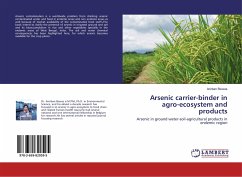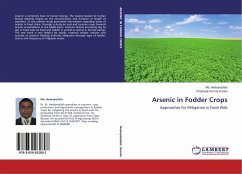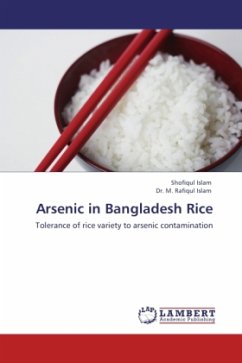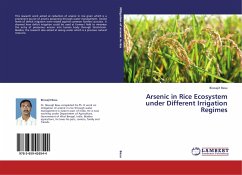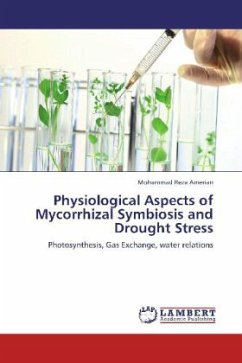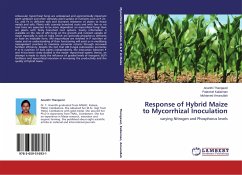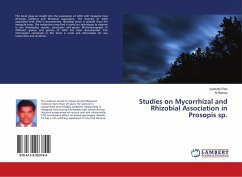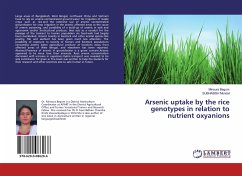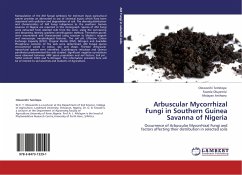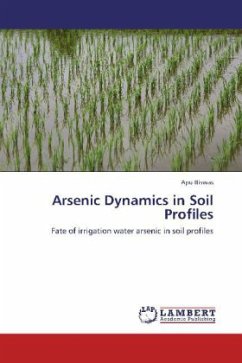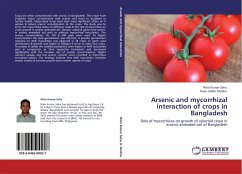
Arsenic and mycorrhizal interaction of crops in Bangladesh
Role of mycorrhizae on growth of selected crops in arsenic amended soil of Bangladesh
Versandkostenfrei!
Versandfertig in 6-10 Tagen
52,99 €
inkl. MwSt.

PAYBACK Punkte
26 °P sammeln!
Crops are often contaminated with arsenic in Bangladesh. This result from irrigation water contaminated with arsenic and leads to problems in human health. Mycorrhizal fungi have their most significant effect on P uptake & reduce arsenic contamination to the crops. The study was to know the mycorrhizal status of different crops & the role of mycorrhiza on crops growth in arsenic amended soil. Tomato, radish & garlic were grown in arsenic amended soil with or without mycorrhizal inoculation. The arsenic concentrations 10, 100 & 500 ppm were used. At higher concentration the seed germination was...
Crops are often contaminated with arsenic in Bangladesh. This result from irrigation water contaminated with arsenic and leads to problems in human health. Mycorrhizal fungi have their most significant effect on P uptake & reduce arsenic contamination to the crops. The study was to know the mycorrhizal status of different crops & the role of mycorrhiza on crops growth in arsenic amended soil. Tomato, radish & garlic were grown in arsenic amended soil with or without mycorrhizal inoculation. The arsenic concentrations 10, 100 & 500 ppm were used. At higher concentration the seed germination was affected. A positive germination response to AMF inoculation was observed in all crops. In garlic seed germination & growth was higher at 500ppm & lower in other two crops. In tomato & radish the studied parameters were higher in AMF inoculated pots in comparison to their respective treatments and decreased significantly with the increase rate of arsenic concentrations. Higher nutrient uptake and less arsenic content were recorded in mycorrhiza inoculated plants. The findings indicate that AMF inoculation minimize arsenic toxicity & increase growth and nutrient uptake of crops.



